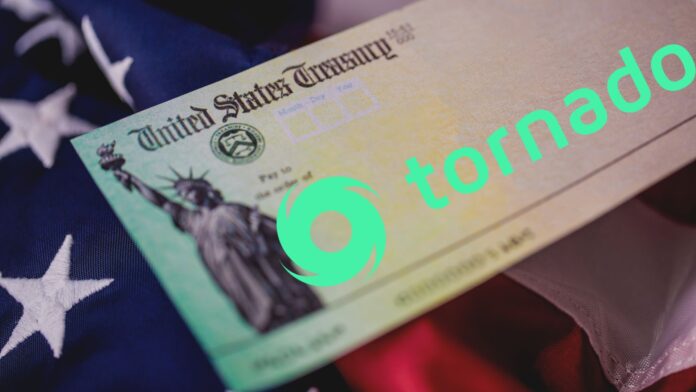In an announcement on Monday, the Office of Foreign Asset Control (OFAC) sanctioned over 40 USDC and ETH addresses from using Tornado Cash, adding them to their Specially Designated Nationals list. The crypto mixing service has allegedly laundered $7 billion worth of crypto to date, including the recent Horizon Bridge hack just over a month ago, and the $375m attack on Wormhole in February.
Whilst most of the cryptocurrency community were startled by the news, others started advocating for privacy rights. All coins running through the concerned wallets are now considered tainted – some of which were sent by internet trolls to addresses belonging to popular names. The decision was supported by Messari founder Ryan Selkis, and Max Quick author Mark Jeffrey, who you’d think would have gone against it. Shapeshift CEO and founder Erik Voorhees advised the MakerDAO community to remove their USDC collateral by converting to an alternative stablecoin.
All told, investigators say Tornado Cash has repeatedly facilitated the laundering of crime proceeds – from DeFi hacks to ransomware payouts – with little to no controls in place to block illicit use. This made Tornado a prime target amid a wider government push to curb crypto-based money laundering. In fact, OFAC had already sanctioned another mixer, Blender.io, in May 2022 for similar reasons, after Blender was used by North Korean hackers. Officials portrayed the Tornado Cash action as a national security matter: “Treasury will continue to aggressively pursue mixers that launder virtual currency for criminals and those who assist them,” said Brian E. Nelson, Under Secretary for Terrorism and Finance. Notably, this is the first time OFAC sanctioned a decentralized protocol’s code rather than a traditional legal entity – an unprecedented step that raised eyebrows in legal and crypto circles.
The OFAC versus Tornado Cash saga underscores the broader privacy vs. security dilemma in the crypto era. Can financial privacy tools exist without enabling criminals? How can open, decentralized networks co-exist with government regulation aimed at stopping illicit activity? The Tornado Cash sanctions brought these questions to the forefront. The coming months and years will be a test of whether the crypto industry and regulators can find common ground – protecting both national security and the principle of privacy – or whether this clash will drive innovation underground. For the crypto community, one lesson is clear: decentralization’s ideals will continually be tested as real-world governments take notice, and how the industry adapts will shape its future.
As of this post, with their developers and wallets being kicked from GitHub and Circle, the Tornado Cash website remains offline.


